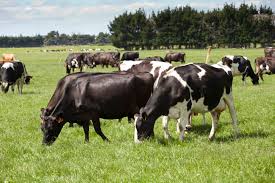Dairy committed to environmental journey
| The Our Freshwater 2020 report released today highlights New Zealand’s environmental challenges and where we can all play our part. DairyNZ strategy and investment leader for environment, Dr David Burger, said dairy farmers are committed to protecting New Zealand’s environment and taking action on-farm to support that. “Our dairy sector is on the journey to improve and protect water quality outcomes and our farmers have been working toward this for over a decade. We are continuing to do more every year,” said Dr Burger. “The Freshwater 2020 report does draw some key themes together for urban, farming and forestry, and shows us that all land use has an impact on our freshwater.” However, Dr Burger said the report’s approach compares current water quality with native forest waterway condition, and DairyNZ believes it is therefore somewhat misleading. “We know that all development has an impact on water quality but it is unrealistic to compare to native forest state. An estimated 95 percent of total river length in pastoral catchments exceeded one or more guideline values simply because they are being compared to very high native forest standard,” said Dr Burger. “Interestingly, more than 50 percent of native waterways also failed to meet this criteria. This sets the benchmark very high for catchments with modified land use. “We welcome further work to develop a more robust environmental reporting system, which is important to understand how to best manage this complex issue, but to also provide assurance that all the environmental actions landowners undertake is leading to improved water quality outcomes.” Dr Burger said Our Freshwater 2020 does illustrates how vital the work underway is – particularly the importance of protecting and restoring wetlands, mitigating the impacts of all contaminants and improving ecosystem health. “We welcome the addition of new measures, including deposited sediment and the impact it has on habitat. For well over a decade, dairy farmers have been fencing and planting waterways to keep stock out of water and to protect and stabilise streambanks to reduce sediment loss. “We all have a part to play and the dairy sector is committed to delivering for the environment, and we know we have more to do. Our plans include a catchment-based local approach and farm-specific actions through Farm Environment Plans to ensure effort is focused where it is most needed.” A key sector commitment to further improve water quality is for all farms to have a Farm Environment Plan by 2025. These plans are crucial in targeting effort to address nitrogen, phosphorus, sediment, E.coli and biodiversity/ecosystem health. “Healthy and swimmable waterways are important to all New Zealanders, including our farmers. We share the aspirations to protect and improve our freshwater resources – we know we can’t farm without healthy water and land, and our Dairy Tomorrow strategy demonstrates our sector’s environmental commitments.” The 2019 Sustainable Dairying: Water Accord demonstrated that 98.3% of significant waterways had been fenced off from dairy cattle, and bridges and culverts are on 100% of stock crossing points dairy cows use. Riparian management plans help to further protect water quality and 10,000 nutrient budgets support dairy farmers to carefully plan nutrient applications and manage losses. “As the Our Freshwater 2020 report points out, water quality is a really complex issue. In any New Zealand waterway, there are contaminants from multiple sources and each catchment is different,” said Dr Burger. “We have thousands of passionate dairy farmers working to play their part alongside others.” |




